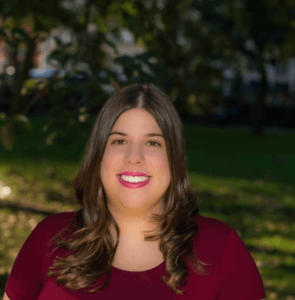Mindfulness has become a hot topic in the field of mental health. Research has shown tremendous benefits of mindfulness, including reduced stress and anxiety, improvement on memory and focus, more satisfied sleep, and an overall better mental function. So what is mindfulness and how can one practice it?
Mindfulness is about living in the present and being aware.
Sounds easy enough, right? Well, it’s actually very difficult! We may be physically present and aware, but not mentally. Throughout the day, there are many thoughts that run through one’s mind at any given time, often unrelated to what we are actually doing. Many times our thoughts are consumed with worries about the future: thinking about all the things we have to do or anxiety about something coming up in the future. People can also spend a lot of time ruminating over past event; feeling upset about how something played out or ashamed of how they acted. Giving in to these thoughts can keep people from enjoying life and inhibit one’s ability to be productive and effective. That is where mindfulness comes in.
Ultimately, being mindful is about taking control over our thoughts and, thereby, our functioning. It takes practice and effort, but the rewards are priceless. The goal is to make mindfulness a more regular, routine part of your life. You can do this by taking a little time each day (even just 15-20 minutes) to consciously be mindful.
How to practice mindfulness:
- Observe what you are experiencing through your 5 senses. Consciously focus your attention onto the sensations that are coming in through your eyes, ears, nose, skin, and tongue.
- Describe what you have observed: the who, what, when, and where. Put words to your experience and label your feelings. Stick to facts, without adding interpretations. Remember if you can’t observe it through your senses, you can’t describe it!
- Stop Multi-tasking. This means do one thing at a time and let go of distractions. In today’s culture, we are prone to doing a hundred things at once, but that is generally a less effective and more stressful way to operate.
- Take out judgments; do not evaluate something as good or bad. It is almost reflex for most people to see something and describe it with a judgment, skipping over facts. For example, if you see someone walking down the street, rather than notice the details of their clothes (i.e. color, patterns, etc.), you may notice their shirt and think “What a pretty shirt,” or “What an ugly shirt.” Start noticing when you are using a judgment and rephrase it to be sticking to facts. This is important because judgments have a huge impact on our mood. For example, when it’s raining, often we think something like “it’s disgusting outside” and our mood is automatically lowered. However, if the judgment is taken out and we just observe “it’s raining out, I should take an umbrella,” it lessens the negative impact the weather has on how we feel.
Here are some examples of mindfulness exercises:
- Deep breathing: there are many ways to practice deep breathing. One option is to sit in a comfortable position with your eyes closed. Inhale for a count of 5 then exhale for a count of 7. Continue as many times as you would like.
- Eat one meal mindfully: observe and describe what the food looks and smells like, how it feels and tastes. Notice textures and colors. Continue to do this for every bite.
- Observe surroundings: when you are travelling on the subway/bus or walking down the street, notice what is going on around you, as you observe it through your senses. Describe what you see; remember to stick to facts and take out judgments.

Alyssa Mairanz, LMHC, DBTC
Alyssa Mairanz provides counseling and therapy services for life transitions, relationship issues, self esteem, depression, anxiety, and DBT and Psychodynamic therapy in a NYC group practice in the Flatiron District near Madison Square Park. She also serves the Village, Chelsea, Union Square, the Financial District and the surrounding areas.
Empower Your Mind Therapy’s mission is to helps our clients build the life they want and find more happiness and satisfaction.



